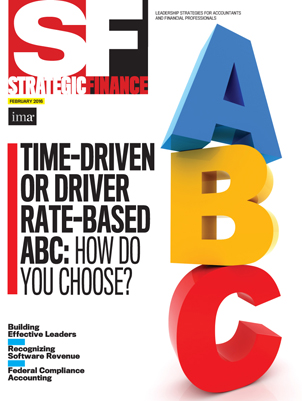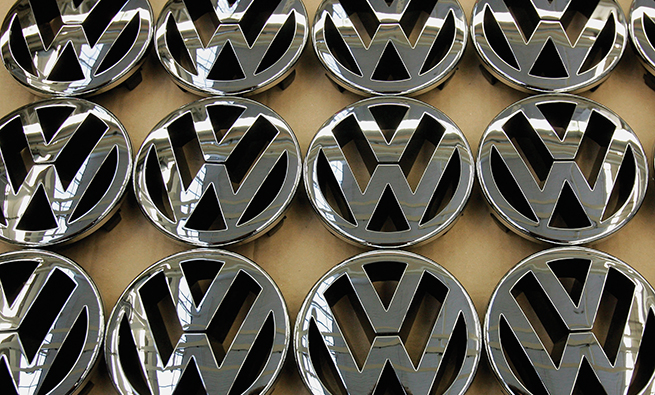Following the General Motors (GM) fraud scandal, the revelations that Volkswagen (VW) had installed software on certain cars to cheat emissions testing was yet another example showing the failures of a corporate ethical culture to manage risks properly and limit damage to the company. While the scandals share some similarities, there is a significant difference between the two: Owners of GM cars involved in the recall for ignition switch problems eagerly awaited the opportunity to have a safety violation repaired. VW car owners, however, may not care about a “fix” that will reduce fuel efficiency to minimize polution.
The VW scandal is an almost unbelievable story. With 12 different brands, Volkswagen AG Group is the largest auto manufacturer in Europe and Germany’s largest company with 2014 revenue of €202.4 billion. The Group Management Report portion of the company’s 2014 Annual Report touts its superior governance by noting that “transparent and responsible corporate governance takes the highest priority in our daily work.” The report claims, “Our pursuit of innovation and perfection and our responsible approach will help to make us the world's leading automaker by 2018—both economically and ecologically (emphasis added).” The Sustainable Value Enhancement Section states, “We run our business responsibly and with a long-term perspective along the entire value chain. Everyone should benefit from this—our customers, our employees, the environment and society.”
In 2013, VW said, “We consider responsible and transparent corporate governance to be a key prerequisite for sustainably increasing the Company’s value. It helps strengthen the trust of our customers and investors in our work and meet the steadily increasing demand for information from national and international stakeholders.” Sadly, these assertions seem to be totally false.
Europe’s car makers have worked hard to change the image of diesel autos from their stinky, smoky, and sluggish past. Successful political efforts in Europe have resulted in lower emission standards than in the United States as well as incentives to protect the auto industry, such as generous subsidies to diesel in the form of tax breaks for diesel-guzzling company cars and low duties on the fuel.
VW’s strategy aimed to convince customers and regulators that new diesel technology represented the ideal solution to maximize fuel economy and performance while carefully protecting the environment from pollution. VW’s German engineering prowess was put to the test but succeeded only by cheating on emissions testing and threatening the health of many citizens of the world, particularly of children and those suffering from respiratory disease. According to Newsweek, “Intense ambition and a rigid corporate culture created the conditions for lying.”
VW’s handling of the pollution issue has caused immense concern among its owners, dealers, investors, employees, and citizens around the world. It wasn’t EPA regulatory vigor that exposed the VW lies, nor did VW confess it was breaking the pollution rules. Actually, it was a small research group that was looking for research evidence that U.S. diesels actually were cleaner than those in Europe, where standards are lower. The 2014 U.S. tests showed that VW cars passed in the lab but had significantly higher emissions when driven on the road.
It took some time and a lot of pressure before VW finally admitted its products were faulty and endangering the health of millions around the world. After months of discussions between VW and the U.S. Environmental Protection Agency (EPA), the company admitted the results were due to a “technical glitch” and issued a voluntary recall in December 2014 for nearly 500,000 diesel cars that VW attributed to “various technical issues.” When emissions didn’t change in 2015, California air quality regulators and the EPA withheld approval for selling any 2016 diesel models, extending the deadline to provide a plan to repair affected vehicles to January 2016, but California regulators rejected VW’s plan as “too vague.”
Contrary to earlier VW indications that only the two-liter or smaller engines were fitted with a defeat device, the EPA—not VW—discovered that larger three-liter engines, including luxury Audi and Porsche models, also had emission falsification devices. “These latest EPA allegations compound the company’s guilt and provide further evidence as to the lack of corporate governance at VW,” wrote Evercore ISI analyst Arndt Ellinghorst. He added, “This raises concerns around reporting, transparency and integrity within VW.”
To date, VW’s actions to deal with the crisis include the almost immediate resignation of CEO Martin Winterkorn, the suspension of employees, and an offer of a “goodwill package” to affected U.S. diesel owners. VW also hired claims attorney Ken Feinberg in November 2015. Feinberg is known for his work on damage suits filed against BP for its Gulf oil spill, GM for its ignition switch issue, and for many September 11 damages.
I don’t envy the job Feinberg has: determining how much monetary damage each of the various groups suffered. That involves answering questions like: How should the decrease in value of a car with lower fuel economy be measured? Should it be market-based or calculated based on increased fuel cost? How important is the age of the car? What will motivate owners to get their cars altered? How should citizens be compensated for the health risks to which they have been subjected? Should medical conditions of respiratory disease be factored in? Should California or China receive special consideration because of the smog potential? What did PricewaterhouseCoopers know about the situation?
The most difficult question is: What is an adequate penalty for officers, directors, and employees, as well as the company itself, to assure remediation and no repetition of unethical behavior that has adversely affected millions in many countries?
IMA ETHICS HELPLINE
For clarification of how the IMA Statement of Ethical Professional Practice applies to your ethical dilemma, contact the IMA Ethics Helpline. In the U.S. or Canada, dial (800) 245-1383. In other countries, dial the AT&T USA Direct Access Number from www.usa.att.com/traveler/index.jsp, then the above number. The IMA Helpline is designed to provide clarification of provisions in the Statement of Ethical Professional Practice, which contains suggestions on how to resolve ethical conflicts. The helpline cannot be considered a hotline to report specific suspected ethical violations.

February 2016



